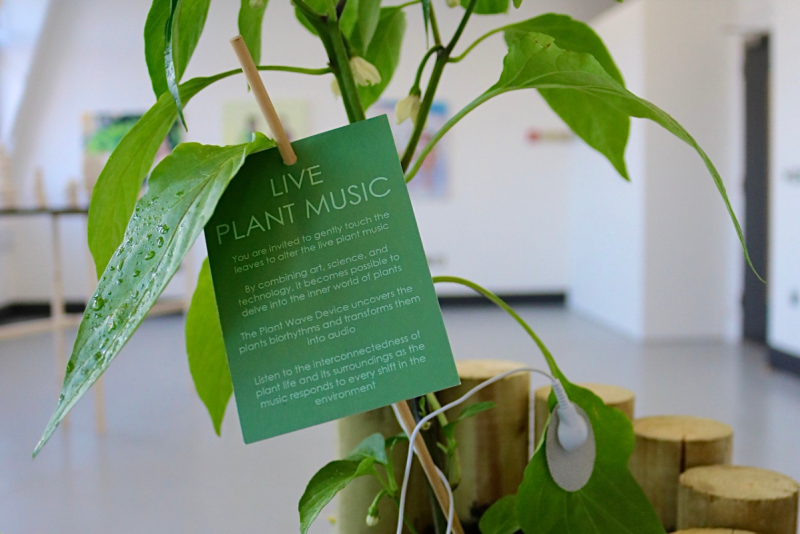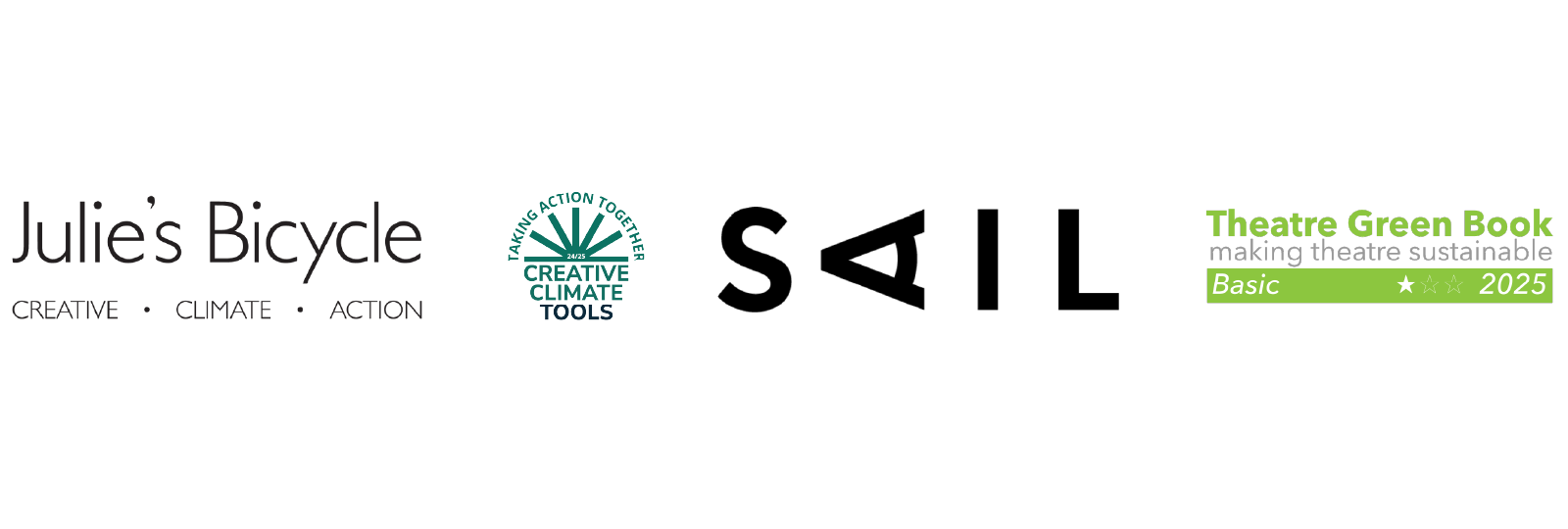Sustainability at IOU Creation Centre
IOU Creation Centre is commited to Sustainable practices and actions throughout it's operations.
IOU Creation Centre’s Commitment to Environmental Sustainability
At IOU Creation Centre, we recognise the importance of environmental action as integral to our role as an interdisciplinary arts organisation. By actively pursuing sustainable practices, we aim to reduce our carbon footprint while setting a positive example for our audiences, artists and across the wider community.
Our Goal for Sustainability
We acknowledge the environmental impact of our operations and are committed to becoming a low carbon impact organisation. Our aim is to continually reduce IOU’s carbon footprint where possible through informed, sustainable choices.
Our current working goal is to reduce IOU’s carbon footprint by 15% from our 2022/23 baseline over the period of 2023 to 2026. This target guides our efforts and keeps us accountable as we make decisions that support meaningful and measurable environmental impact.
Guiding Principles
Our environmental approach is guided by a set of core principles:
- Leadership Engagement: Environmental issues are discussed regularly at the highest management levels, with actionable steps taken as needed
- Low-Carbon Transportation: We prioritise low-carbon travel options, favouring walking or public transport for work-related travel
- Utility and Energy Efficiency: Efforts are made to minimise energy use across our activities
- Reduce, Reuse, Recycle: We emphasise sustainable practices in our operations, employing the principles of reduce, reuse, and recycle whenever practical
- Responsible Waste Management: Waste is managed with the goal of minimising landfill contributions
- Promoting Good Environmental Practices: We aim to engage everyone who interacts with IOU—audiences, staff, visitors, funders, and partners—in our commitment to environmental stewardship
Environmental Impacts
The primary environmental impacts associated with IOU’s operations include:
- CO2 Emissions from energy use at our studio and from travel for meetings and shows.
- Waste Production from general office and studio activities, as well as production development.
- Material Usage from developing productions.
Our Commitments to Sustainable Action
IOU is focused on the following key areas to minimise our environmental impact:
- Reducing Energy Consumption: Implementing strategies to reduce our studio energy use.
- Increasing Recycling and Reducing Waste: Actively improving waste management and recycling efforts.
- Utilising IOU’s Facilities: Structuring programmes to maximise the potential of our on-site resources.
- Minimising Touring Impact: Reducing tour frequency in favour of local presentations within Calderdale.
- Sustainable Material Use: Prioritising sustainable materials and suppliers in our productions, with a focus on circularity by reusing, repurposing, or recycling materials to minimise waste.


Industry Standards and Collaboration
IOU is dedicated to following established guidelines and collaborating with industry networks to uphold and advance sustainable practices:
- Theatre Green Book: We utilise the Theatre Green Book guidelines, which help set sustainable standards in the sector. IOU achieved Basic Standard in productions, operations and buildings during 2024-25.
- SAIL Membership: As a member of Sustainable Arts in Leeds, we benefit from a shared commitment to reducing the carbon footprint of the creative sector in West Yorkshire. SAIL provides access to training, resources and accountability mechanisms.
- Environmental Monitoring and Reporting: We track our environmental performance and annual emissions with Julie’s Bicycle Creative Climate Tools, sharing our findings both internally and publicly.
Reviewing and Improving Our Policy
Our Environmental Policy and Action Plan undergo annual review by the senior management team and an appointed board member. This review is informed by new data, industry learning, and operational experience, with oversight by a board subgroup to ensure continuous improvement. Quarterly monitoring ensures that our environmental practices remain effective, with updates made as needed based on findings.

